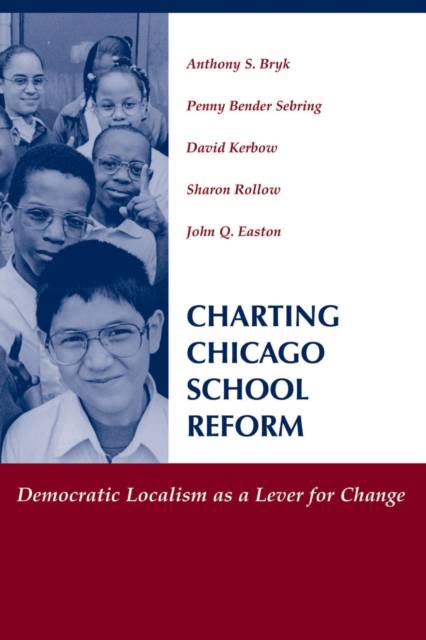
- Afhalen na 1 uur in een winkel met voorraad
- Gratis thuislevering in België vanaf € 30
- Ruim aanbod met 7 miljoen producten
- Afhalen na 1 uur in een winkel met voorraad
- Gratis thuislevering in België vanaf € 30
- Ruim aanbod met 7 miljoen producten
Zoeken
Charting Chicago School Reform
Democratic Localism As A Lever For Change
Anthony Bryk, Penny Bender Sebring, David Kerbow
Paperback | Engels
€ 108,45
+ 216 punten
Uitvoering
Omschrijving
This book represents a synthesis of what the authors learned from the first four years of Chicago school reform. It discusses the additional changes needed at the school site and district level if decentralization, Chicago-style, is to result in improvement in learning opportunities for children.
Specificaties
Betrokkenen
- Auteur(s):
- Uitgeverij:
Inhoud
- Aantal bladzijden:
- 404
- Taal:
- Engels
Eigenschappen
- Productcode (EAN):
- 9780813366258
- Verschijningsdatum:
- 6/08/1999
- Uitvoering:
- Paperback
- Formaat:
- Trade paperback (VS)
- Afmetingen:
- 152 mm x 229 mm
- Gewicht:
- 539 g

Alleen bij Standaard Boekhandel
+ 216 punten op je klantenkaart van Standaard Boekhandel
Beoordelingen
We publiceren alleen reviews die voldoen aan de voorwaarden voor reviews. Bekijk onze voorwaarden voor reviews.







